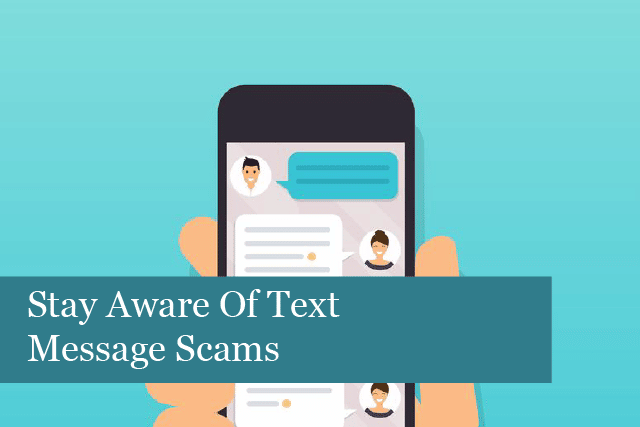
Cybercriminals continue to develop new ways to trick people into completing certain actions. One such scam is called the missed parcel text message scam. The messages look like they’re coming from a legitimate delivery company, so it’s confusing as to whether or not these messages are real or fake. So, how can you protect yourself from these scam text messages?
You can protect yourself from these types of text message scams by knowing the details of how the scams work. We’ve put together some information about this scam so you can protect yourself, your loved ones from being scammed.
What Do the Messages Look Like?
The messages usually have links to websites that sound like they are legitimate delivery company sites. If you click on the link, it may take you to a site that asks you to download a tracking app, or it may say that your phone is infected with a virus. The site may then ask you to download anti-virus software, which is fake.
The most common scams of this type are called banking trojans, with the two most common being FluBot and Anatsa.
What Happens If You Install Some Malware?
There’s a type of app called spyware that steals banking details, passwords, and other sensitive data from your phone. Criminals are continuously coming up with new versions of this scam. But they usually include links to a website. When you reach the website, you may see a message saying your phone has been infected with FluBot, and it’s necessary to install a software update to remove the malware.
However, at this point, your phone is not infected yet. But if you download the malware, your phone is compromised, and the app has the ability to steal banking data and much more.
The Problem with Scam Text Messages
The problem with scam text messages is that they look so real. It can be challenging to tell the difference between these and an actual message. They look completely legitimate. And this is what criminals intend. They know that many people will believe the message is real and click on the links for more information.
However, the key is to avoid clicking on the links or calling back the number included in the scam text message. Just like the link, the phone number only leads to a criminal intent on stealing your personal data.
How to Handle a Suspicious Email
If you receive a suspicious email, it’s best to take your time to evaluate the message. Here are some warning signs that a text message about a parcel delivery is a scam:
- You haven’t ordered anything and are not expecting a parcel delivery
- The text message contains unexpected requests for money in return for delivery of a parcel (the message may make you feel stressed)
- Requests for personal and/or financial information
- The message or link contains misspelt or slightly altered website addresses
- Spelling and grammatical errors or the use of excessive numbers of exclamation points or capitalisation
In addition, criminals have the ability to spoof phone numbers illegally used to send and receive calls and texts. This is done to trick the victim(s) into thinking the number is legitimate.
How Do I Know If I’ve Been Scammed?
It may not be obvious that you’ve been scammed. However, you may have been scammed if:
The company you sent money to stops replying to calls, messages, and emails. If you send money or details to the scammer, they won’t want to hear back from you.
You may not be able to access your online banking or other accounts. That’s because the criminals may have changed your passwords. And if you can access these accounts, you may find that large sums of money have been taken out of the account. This may be done through one large transaction or through several smaller ones.
And if you’ve become a victim of a scam where you were asked to make a purchase or told you’d receive a package, if these never arrive, you’ve been scammed.
What To Do If You’ve Been Scammed
If you believe you’ve been scammed, the first thing to do is not feel bad. The parcel delivery scam texts are created to appear legitimate, and it’s easy to mistake them for the real thing. So, don’t feel bad. Instead, the first thing is to call your bank, or other institutions you know have been compromised.
Call the bank and let them know you’ve been scammed and give them the exact details of what’s happened and that the amounts removed from your account are fraudulent. Here’s another issue to be aware of.
Some criminals will call back after they’ve scammed you. They may pose as your bank and try to convince you to move your funds into a safer account. However, no legitimate financial institution will ever ask you to do this. So, if you receive such a call, hang up immediately. Call the number on the back of your debit card to contact your bank right away.
Your bank will never ask you for your passwords, PINS, or other login credentials over the phone. Most banks have policies in place to deal with these cases. However, it may not be possible to get your money back.
If your bank says you can’t have a refund, don’t give up. Keep on until they say you will definitely not be reimbursed. At this point, it’s best to contact the Financial Ombudsman Service. This is a free service that will contact the bank on your behalf to raise a dispute. They will try to help you get your money back.
Summing It Up
If you receive suspicious text messages that could be part of the parcel text message scam, be sure to report this right away to the NCSC via email to this email address: report@phishing.gov.uk. This is part of the National Cyber Security Centre’s Suspicious Email Reporting Service.
And if you’ve been scammed, it’s imperative to call your bank or other financial institutions right away. Don’t feel guilty or bad. These messages look legitimate. Seek assistance as soon as possible after you’ve been scammed.
Recommended Posts

10 Biggest Cybersecurity Mistakes of Small Companies
18th April 2025

The Importance of Planning in Business IT Solutions
11th April 2025

